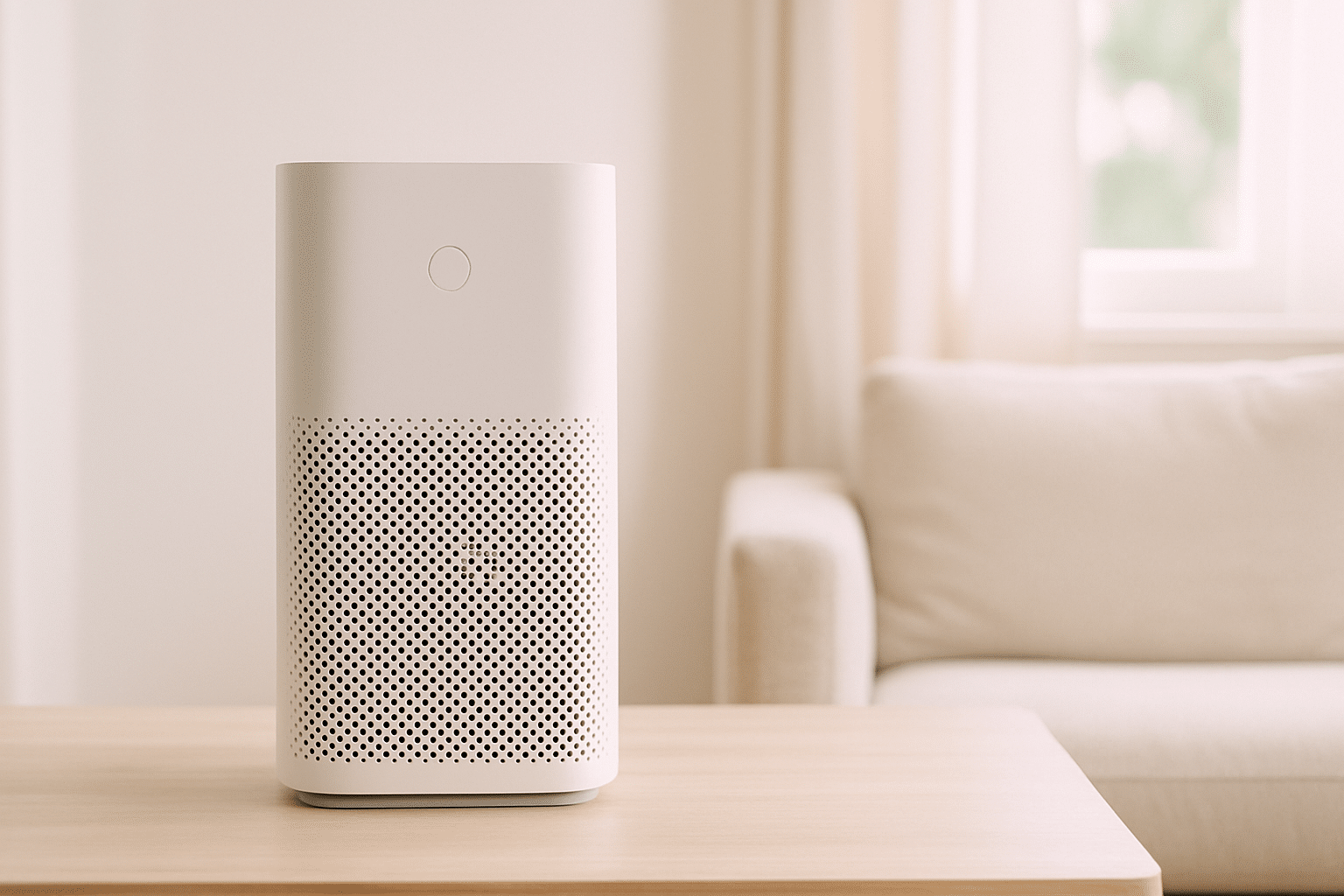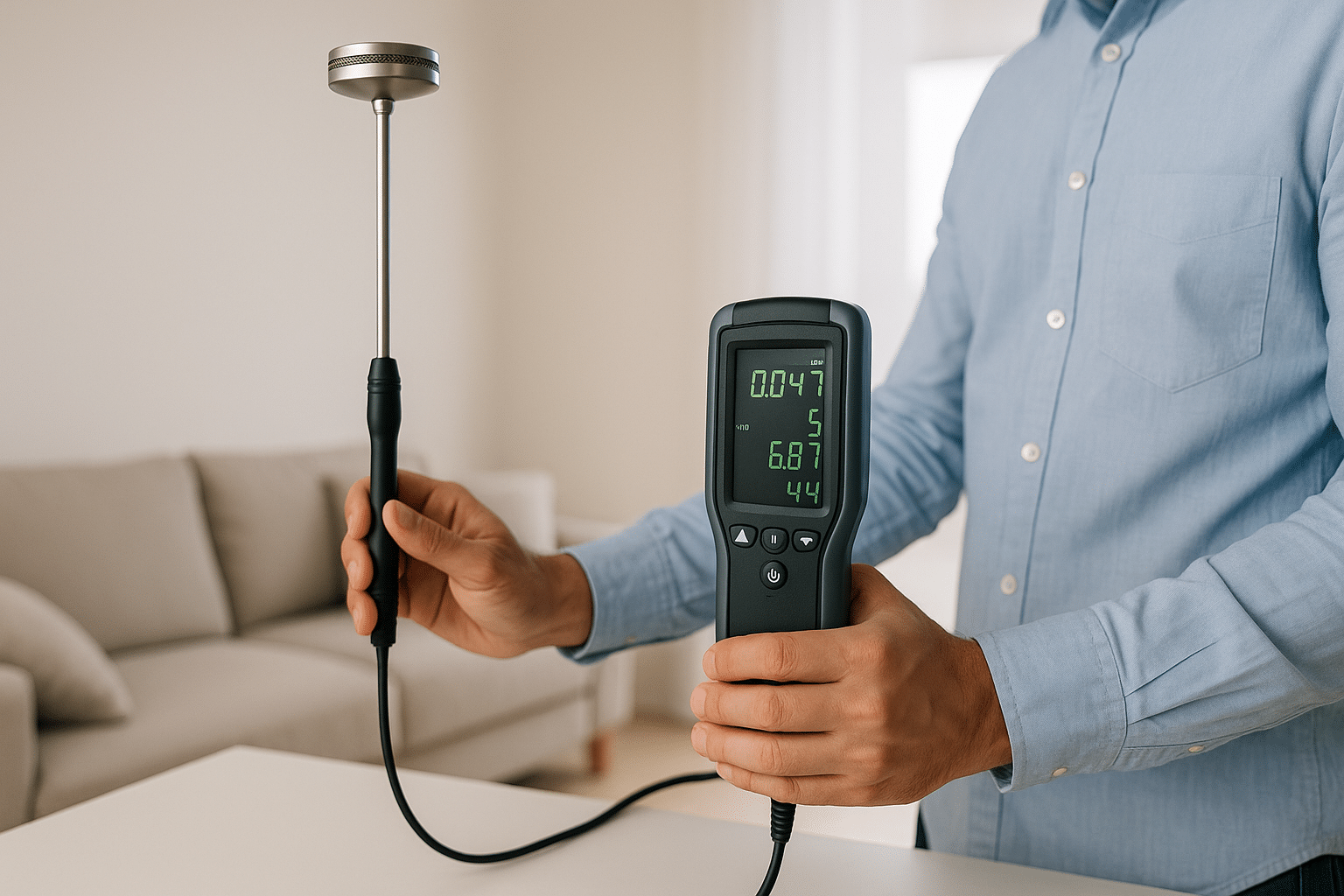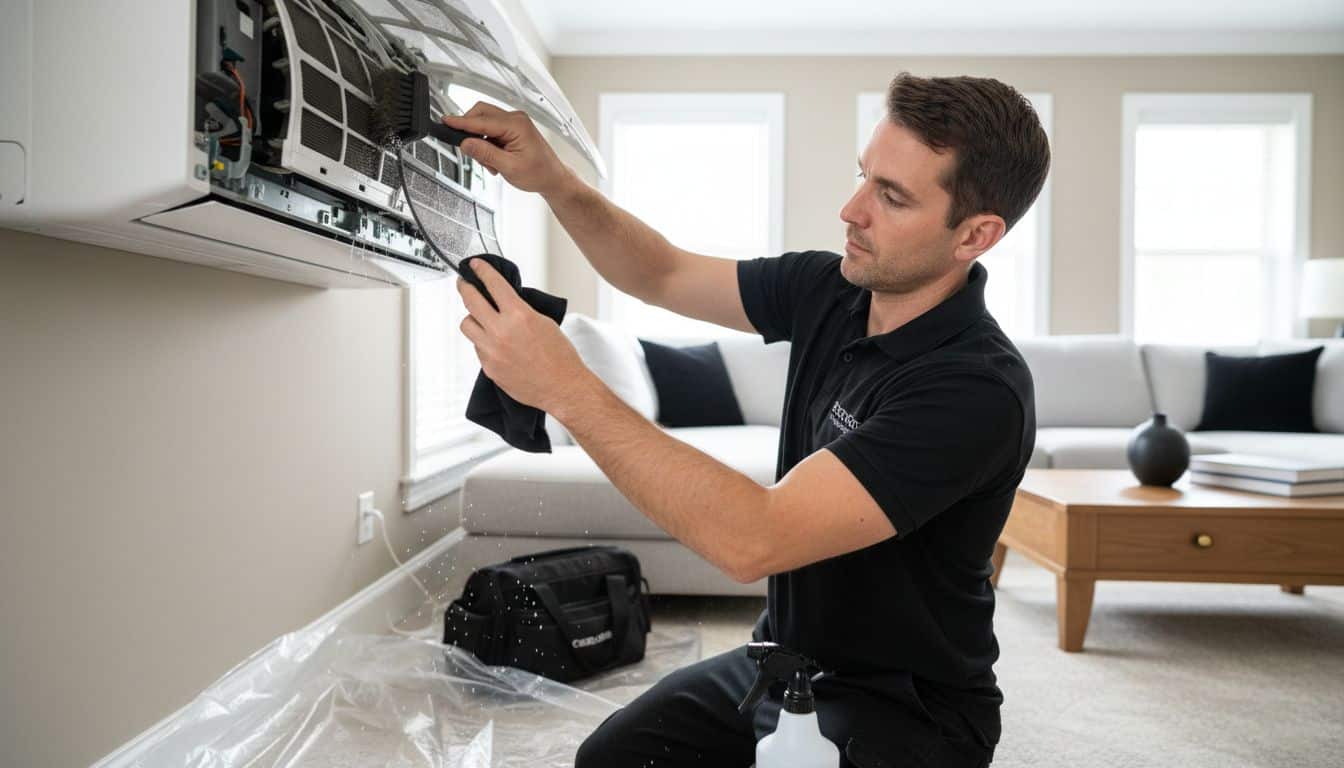
10 Must-Know FAQs About Improving Indoor Air Quality in Dubai
Table of Contents
Contents
- 1 Table of Contents
- 2 Why Indoor Air Quality Matters in Dubai
- 3 Common Sources of Indoor Pollution
- 4 How to Assess Indoor Air Quality Effectively
- 5 Top Proven Methods for Improving Indoor Air Quality
- 6 Role of Air Conditioning Systems in Air Quality
- 7 Importance of Ventilation in Dubai Climate
- 8 How Often Should Air Filters Be Changed?
- 9 Can Indoor Plants Improve Air Quality?
- 10 Professional Cleaning Services in Dubai
- 11 Final Tips and Local Resources
- 12 Effective Strategies for Improving Indoor Air Quality
- 12.1 Understanding Indoor Pollutants Specific to Dubai
- 12.2 Enhancing Ventilation and Air Filtration
- 12.3 Source Control: Reducing Indoor Pollutant Origins
- 12.4 Regular Cleaning and Maintenance Practices
- 12.5 Modern Technologies Advancing Indoor Air Quality
- 12.6 Community and Regulatory Support for Clean Air
- 12.7 Simple Daily Habits to Support Cleaner Indoor Air
Why Indoor Air Quality Matters in Dubai
Improving indoor air quality is critical for health and wellbeing, especially in Dubai’s challenging environment. The combination of extreme heat, humidity, and high outdoor pollution levels caused by construction and traffic results in indoor spaces often having compromised air freshness. Residents and businesses alike need clean, breathable air to reduce respiratory problems, allergies, and other health hazards common in urban settings. Dubai Municipality and the Dubai Health Authority emphasize the significance of maintaining good indoor air quality standards, particularly given the city’s reliance on air conditioning systems.
Common Sources of Indoor Pollution
Diverse factors contribute to poor indoor air quality in Dubai’s homes and offices. Typical sources include:
- Dust and sand particles that infiltrate enclosed spaces due to frequent desert winds.
- Volatile organic compounds (VOCs) emitted by paints, cleaning agents, and furnishings common in Dubai’s modern interiors.
- Combustion pollutants from cooking appliances and, occasionally, smoking indoors.
- Biological contaminants such as mold and bacteria favored by humid indoor environments when ventilation is inadequate.
- Pet dander and allergens brought in by domestic pets.
Understanding these sources helps tailor solutions to improving indoor air quality specific to Dubai’s building types and climate conditions.
How to Assess Indoor Air Quality Effectively
Homeowners and facility managers in Dubai can use various methods to evaluate indoor air quality. Some key techniques include:
- Using air quality monitors to detect particulate matter (PM2.5 and PM10), carbon dioxide, and VOC levels.
- Visual inspection for dust accumulation, mold growth, and signs of poor ventilation.
- Monitoring symptoms like frequent headaches, sneezing, or irritation among occupants.
- Professional assessments through certified indoor air quality specialists, which are highly recommended for commercial offices in Downtown Dubai or Business Bay.
Proper assessment guides smart decision-making regarding necessary improvements and investments.
Top Proven Methods for Improving Indoor Air Quality
Improving indoor air quality requires a practical, multifaceted approach. Here are actionable strategies proven effective in Dubai’s indoor environments:
- Regular HVAC maintenance: Schedule cleaning and servicing of air conditioning systems to reduce dust and mold circulation.
- Enhance ventilation: Use mechanical ventilation systems or exhaust fans to mitigate indoor humidity and pollutants.
- Air purifiers: Deploy HEPA filter-based air purifiers to capture fine dust and allergens.
- Eliminate pollutant sources: Opt for low-VOC paints and eco-friendly cleaning products, and restrict smoking indoors.
- Humidity control: Use dehumidifiers in humid areas like bathrooms to prevent mold growth.
- Indoor plants: Select certain species known for their air purifying properties, although their effect is supplementary.
Following these steps regularly can significantly contribute to improving indoor air quality for Dubai homes and offices.
Role of Air Conditioning Systems in Air Quality
Air conditioning systems are the backbone of comfort in Dubai’s hot climate but play a dual role with indoor air quality. When well-maintained, they filter and regulate indoor air, removing heat, humidity, and some pollutants. Conversely, neglected AC units can harbor dust, mold, and bacteria that degrade air quality and introduce health risks.
Dubai residents often rely heavily on centralized or split AC units. Routine cleaning of filters and ducts is crucial. Hiring trained technicians, such as professionals from Saniservice Dubai, ensures systems run efficiently and air remains clean.
Importance of Ventilation in Dubai Climate
Good ventilation in Dubai involves balancing fresh air intake with minimizing dust and sand ingress. Because outdoor air carries considerable particulate matter due to desert conditions and urban pollution, ventilation strategies must involve filtration and controlled air exchange.
Dubai Municipality guidelines promote adequate ventilation rates for commercial and residential buildings to improve occupant health and meet safety regulations. Mechanical ventilation systems that include air filtration help maintain healthy indoor environments despite external environmental challenges.
How Often Should Air Filters Be Changed?
Regular filter replacement is a critical component of improving indoor air quality. In Dubai, where dust accumulation is rapid, filters usually require more frequent checks. Experts recommend inspecting air filters every 1-3 months depending on usage and environmental conditions.
A practical maintenance schedule might look like:
| Type of Filter | Recommended Replacement Frequency |
|---|---|
| Standard AC Filters | Every 1-2 months |
| HEPA Filters (Air Purifiers) | Every 6-12 months |
| Duct Filters (Commercial HVAC) | Every 3 months |
Following this schedule helps ensure consistent removal of dust and allergens.
Can Indoor Plants Improve Air Quality?
Indoor plants are often recommended as natural air purifiers. While certain species can absorb some VOCs and increase oxygen levels, their impact on improving indoor air quality is generally supplementary rather than primary. In Dubai’s climate, careful selection and maintenance are needed to avoid mold or insect issues related to plant humidity.
Integrating indoor plants with proper ventilation and air filtration systems creates a more holistic strategy for improving indoor air quality.
Professional Cleaning Services in Dubai
For consistent and effective results in improving indoor air quality, professional cleaning and duct maintenance services are invaluable. Companies specialized in HVAC and indoor environment cleaning, such as Saniservice in Dubai, offer comprehensive solutions tailored to regional climate and regulatory conditions.
Additionally, organizations like the National Air Duct Cleaners Association set industry standards internationally that many Dubai service providers follow to guarantee quality.
Engaging experts ensures proper disinfection, removal of microbial contamination, and compliance with Dubai Municipality and Dubai Health & Safety guidelines.
Final Tips and Local Resources
Improving indoor air quality is an ongoing process requiring dedication and informed choices. Here are final actionable tips:
- Stay informed of Dubai Municipality’s latest indoor air quality regulations.
- Choose cleaning and maintenance partners based in Dubai familiar with local climate challenges.
- Regularly monitor indoor environments using affordable air quality sensors.
- Minimize indoor pollutant sources and maintain AC units consistently.
Leveraging expert help alongside personal efforts is crucial for improving indoor air quality and will lead to healthier, fresher indoor spaces.
Effective Strategies for Improving Indoor Air Quality
Indoor air quality is a critical aspect of maintaining a healthy and comfortable living or working environment, especially in bustling urban areas like Dubai where outdoor pollutants can easily infiltrate indoor spaces. Improving indoor air quality not only helps reduce the risk of respiratory issues but also enhances overall wellbeing and productivity. This section delves deeper into practical methods and sustainable approaches tailored to Dubai’s unique climate and urban environment, ensuring cleaner, safer air inside your home or office.
Understanding Indoor Pollutants Specific to Dubai
Dubai’s rapid urbanization, desert climate, and frequent dust storms present unique indoor air challenges. Common indoor pollutants include fine dust particles, volatile organic compounds (VOCs) emitted by construction materials and furnishings, as well as biological contaminants such as mold and allergens. Additionally, local cooking methods and incense burning can release airborne particles and gases that degrade indoor air quality. Recognizing these sources is the first step toward targeted solutions.
The Dubai Municipality has outlined guidelines to limit harmful indoor pollutants and promote healthier environments in residential and commercial buildings. These regulations emphasize the importance of ventilation, source control, and regular maintenance of HVAC (heating, ventilation, and air conditioning) systems, which are integral in a region with extreme heat and dust exposure.
Enhancing Ventilation and Air Filtration
Ventilation plays a pivotal role in improving indoor air quality by diluting indoor pollutants and facilitating their removal from living spaces. However, Dubai’s hot climate means that constantly opening windows is often impractical, calling for smarter alternatives:
- Mechanical Ventilation Systems: Installing high-efficiency air handling units with advanced filtration options is essential. Systems equipped with HEPA filters or activated carbon filters can trap particulate matter, VOCs, and odors commonly found in Dubai’s indoor environment.
- Use of Energy Recovery Ventilators (ERVs): These devices improve indoor air without wasting energy by exchanging the heat and humidity between outgoing and incoming air, which is especially beneficial in Dubai’s humid summers and dry winters.
- Regular Maintenance: Every ventilation unit should be maintained according to Dubai Health Authority (DHA) standards to ensure performance and avoid microbial contamination.
Indoor plants have also become a popular, though modest, natural aid to improving air quality. Certain species suitable for Dubai’s indoor conditions can absorb toxins, raise humidity, and enhance aesthetic appeal, providing psychological benefits alongside physical ones.
Source Control: Reducing Indoor Pollutant Origins
One of the most effective steps toward improving indoor air quality is controlling pollution at the source before it spreads through the indoor air. In Dubai, practical measures include:
- Choosing low-emission building materials and furnishings certified by Emirates Authority for Standardization and Metrology (ESMA).
- Avoiding synthetic cleaning products that release strong VOCs. Instead, opt for eco-friendly alternatives recommended by the Dubai Municipality.
- Managing humidity levels to prevent mold growth by using dehumidifiers or smart HVAC controls; mold is a common issue in parts of Dubai where air conditioning produces condensation.
- Implementing smoke-free zones indoors, notably restricting shisha or incense burning, which are traditional but produce harmful pollutants affecting respiratory health.
Regular Cleaning and Maintenance Practices
Keeping indoor environments clean is essential, but in Dubai’s dusty atmosphere, special attention must be paid to limit dust accumulation, which can harbor allergens and pathogens.
- High-Efficiency Vacuuming: Utilizing vacuum cleaners fitted with HEPA filters can capture fine dust particles rather than redistributing them indoors.
- Frequent Dusting: Using damp cloths or electrostatic dusters helps to trap dust on surfaces more effectively than dry methods.
- Air Duct Cleaning: In Dubai’s hot climate, many buildings rely heavily on ducted air conditioning. Routine cleaning of ducts ensures that dust and microbial contaminants do not recirculate inside.
- Carpet and Upholstery Care: These surfaces can trap pollutants; professional cleaning services in Dubai, following DHA and Dubai Municipality standards, can help maintain indoor air hygiene.
Modern Technologies Advancing Indoor Air Quality
Dubai’s embrace of smart building technologies opens new pathways for improving indoor air quality dynamically:
- Air Quality Sensors: These devices monitor real-time pollutant levels inside homes or offices, enabling occupants and building managers to take timely actions based on data.
- Smart HVAC Systems: Integrated with sensors, these systems automatically adjust airflow, filtration strength, and humidity control to maintain optimal air quality with energy efficiency.
- UV Light Air Purifiers: Used within ventilation systems, ultraviolet germicidal irradiation (UVGI) can deactivate bacteria, viruses, and mold spores, providing a high standard of sanitization favored in healthcare and education facilities in Dubai.
Community and Regulatory Support for Clean Air
Improving indoor air quality is not only an individual responsibility but also a community priority supported by effective policies and regulations:
- Dubai Municipality enforces building codes that require proper ventilation, pollutant control, and certification for HVAC installations.
- The Dubai Health Authority (DHA) promotes awareness campaigns and issues guidelines for maintaining indoor health standards across various facility types.
- Sustainable building certification programs, such as Dubai Green Building Regulations and other relevant sustainability frameworks, include criteria geared toward optimizing indoor environmental quality, including air quality.
For residents and businesses, understanding and aligning with these regulations ensures safer indoor spaces and contributes to Dubai’s overarching vision for a healthy, sustainable city.
Simple Daily Habits to Support Cleaner Indoor Air
While advanced systems and rigorous maintenance are essential, everyday behaviors also significantly influence indoor air quality:
- Avoid smoking or burning incense indoors.
- Limit the use of aerosols and strong chemical cleaners.
- Allow fresh air flow during less dusty periods, such as early morning or after rain.
- Regularly clean AC filters and replace them according to manufacturer recommendations.
- Use exhaust fans in kitchens and bathrooms to prevent buildup of moisture and odors.
In summary, improving indoor air quality involves a combination of smart technology, strict adherence to local guidelines, and proactive personal habits tailored to Dubai’s environment. Through these comprehensive strategies, residents and business owners can safeguard their indoor spaces, enhancing health and comfort amid the city’s vibrant urban landscape.






Leave a Reply